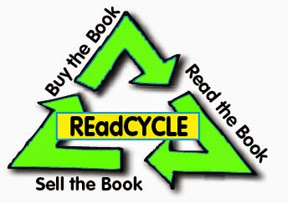In 2012, on this blog, I examined the phenomenon of online
e-book piracy in a five-part series. In
that series, I attempted to examine the reasons behind piracy, the impact that
piracy could have on the publishing industry over time, and even tossed some ideas
around about the way the industry might eventually change to make piracy less
attractive to consumers. That series can
be found at the links below, and I think it’s a really good read for those who
want to get educated on at least some of the issues surrounding this
controversial topic.
It’s nearly three years later, and the industry is
ever-evolving. Independently published
(a.k.a. self-published) books are more common than ever. E-books are beginning to outpace printed
books. The Amazon Lending Library has
been developed and led to other e-book lending programs. Subscription services for e-Books that
operate similarly to Netflix have begun to spring up.
But there’s one article that caught my eye recently and made
me want to visit the issue, and that is the possibility of the selling of used
e-books.
There has always been a used book market. In fact, there have been stores that have
specialized in the selling of second-hand books. I know when I was in college, one would actively
seek out used textbooks (as long as the newest editions was not required). They were cheaper – one expected that the
books would have some wear and tear but was willing to accept that for the
lower price.
It is now reported that a group is working with “one of the
world’s largest booksellers” in order to start up a used e-book
marketplace. Presumably, this would be a
place for sellers to load their digital books for resale once they are done
with them.
So that brings us to the big question – would such a
marketplace even be legal? The legal
question involves the “first-sale doctrine” which prevents copyright holders
from stopping the sale, trade, or lending of legally acquired property. This is what makes things like used
bookstores and Gamestop’s used video game market possible. It also is what legally allows an owner of a
DVD to let their neighbor borrow it.
There are a couple of key premises that make the “first-sale
doctrine” work. First, it was
established in the early 20th century, at a time when the concern
was the resale and lending of a physical good.
Physical goods, including books, sound recordings, and film, deteriorate
over time. Thus it is a given that the
thing being resold or lent had lost some of its quality, thus some of its
value. This is a new time, and digital
media has no such “shelf life”. The file
is the same quality whether it is the initial sale or it has changed hands
dozens or even hundreds of times.
The second premise, and perhaps the hardest to enforce, is
that upon resale or lending the product actually changes hands. This means that the item should become
unusable to the seller or lender. (Actually,
this is how Amazon lending works on the Kindle – when one user lends a book to
another, it becomes unreadable by the lender until the borrower “returns” it.) This is where things can get sketchy. For example, one e-book resale site can only
operate “on the honor” of the lenders, that they no longer have a copy of the
e-book.
However, there’s a flaw in the system that could hurt the bookstore’s defense. One of the key provisions of the UsedSoft ruling was that, in order for the transaction to be legal, the seller must “make the copy downloaded onto his own computer unusable at the time of resale.”
Tom Kabinet has no way of ensuring that this has happened, so it is easily possible for someone to both keep and sell the ebooks they’ve bought. The company can only run an honor system, asking people to confirm that they purchased the ebook legally and that they have deleted their own copy. - David Meyer, from an article on Gigaom.com
This is where the distinction MUST be made between
transference of a product, and creating another copy of the product, because if
this distinction is not made and enforceable, then what could result is a form
of legalized piracy. Think about it … as
a consumer I might choose to buy a $0.99 used e-book instead of a $2.99 “new”
version off of Amazon. This might be
alright if it is only the one copy that the seller owned that is being
sold. But what if that person is just
putting up endless copies of the e-book while they retain a copy for themselves,
and selling each one at $0.99 where only they (and perhaps the marketplace) see
that money?
Personally, I am keeping an open mind about this to see how
things turn out, but authors should be vigilant about these potential changes to
the marketplace.
Authors, what are your thoughts on this potential used
e-book effort? And readers, how would
you feel about a used e-book marketplace, or do you think the momentum is
headed more towards subscription services?
Sources:



No comments:
Post a Comment